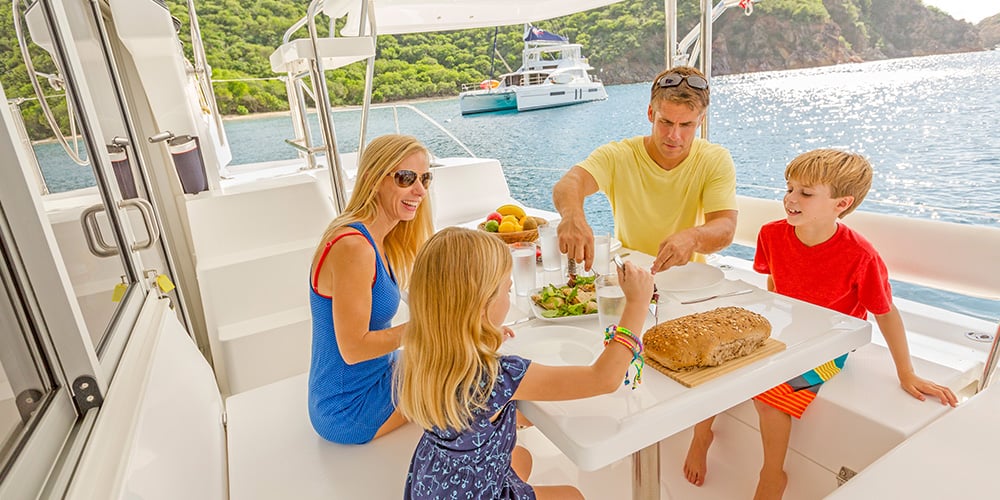Running a yacht is essentially a management exercise. The sailing is the easy bit! Maintenance, passage planning, etc all gets done by the crew, who need to be feed. So you could argue is one of the most important parts. For me it is actually the hardest part if it’s for a passage or even just a charter. Loading a boat with everything for a week’s charter is no mean feat both physically and mentally.
#1 - Make a list
As well as a shopping list I like to start with a plan of things will be doing for the week and who will be aboard. This can then evolve into a bit of a meal plan and then get to an actual shopping list.
Make sure to have back up ideas in your meal plan. Here in the Caribbean you are not likely to get everything you wanted in one place. My weekly shop living on land usually involves 3 stores along the way and a common scenario “not having that this week then” comes to mind.
Pick things up as you go and have a list of things you need hanging around as a reminder. It is a lot easier to carry a little and often than big loads.
#2 – Trolley
A must have piece of inventory to be onboard that makes life so much easier for shopping. You park your car at the supermarket, but it is not often that you can park your boat at one. Not only for food, the trolley is for errands to get gas for the dinghy and propane for cooking. In the Caribbean that can often be at “the gas station down the road mon”. There is a lot of choice on types these days to choose from that collapse up small to stow.
#3 – Herbs and Spices
Being in the charter capital of the world I have meet a lot of crewed chefs and been onboard a few boats that are set up for an amazing time and a 5 star culinary experience. I am quite amazed with the limited amount of fridge space and knowing how tricky top quality ingredients can be to find on island, that chefs come up with such tasty food. Let us just say I always note a well stoked herb and spice selection onboard. Of course having it is one thing, but knowing what to do with it is equally as important. Another idea to note how about cookery lessons? You probably went out and got some sailing lessons, so why not a bit more knowledge with all aspects of daily boat life to make it easier and more enjoyable. The morale of a well feed crew is always going to be better!
When it comes to food onboard, living with limited fridge space for an abundance of fresh produce is going to be a challenge. In the Caribbean you will find fresh fruit and locally caught fish while out cruising, but having a pantry of dried goods to liven things up will help. Take porridge as an example does not sound great on its own, but add cinnamon, honey and banana…
#4 – Bread
I love a sandwich or just a slice of bread with something tasty spread on it. It is a quick an easy meal or snack onboard. I have recently discovered how easy bread is to make and requires a limited number of ingredients. Fresh bread is the best and with limited options to pick up while cruising or limited freezer space to store, then baking your own is a no brainer. Life onboard is easier to manage with a series of routines, so just add it in. The beauty though is it’s not a daily chore just as and when.
#5 – Rum
Well this is the Caribbean and using local produce is always a good thing! Back in the day sailors would not put to see without it onboard. And remember drinking rum before noon does not make you an alcoholic, it makes you a pirate!


